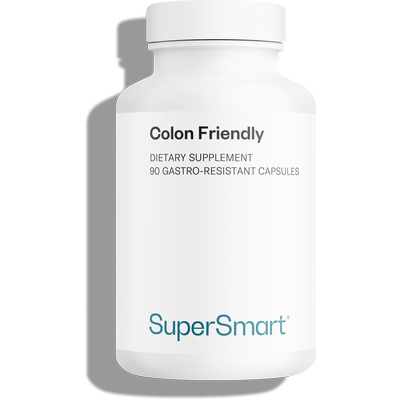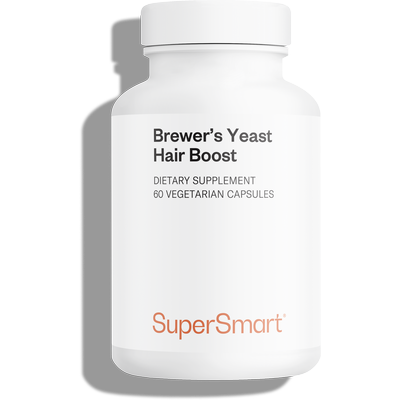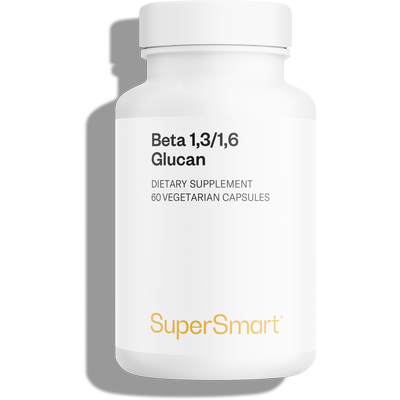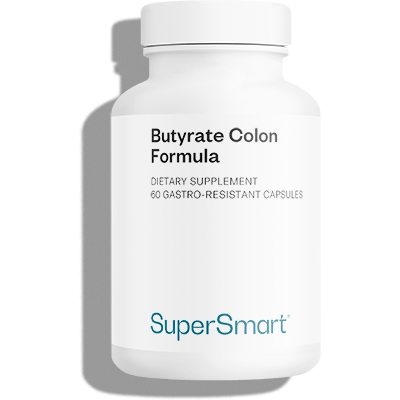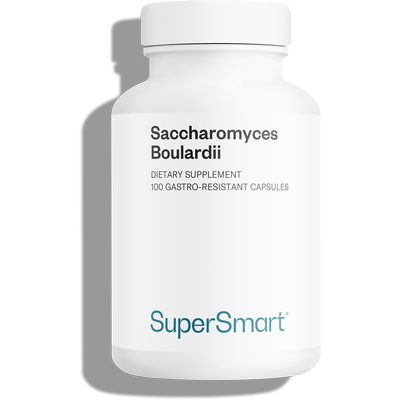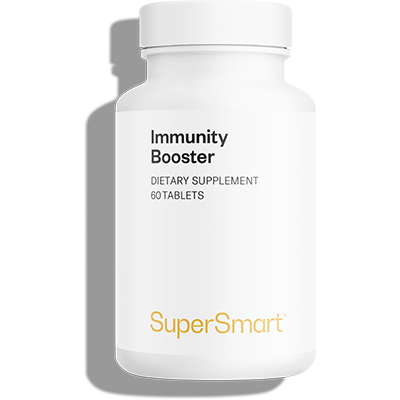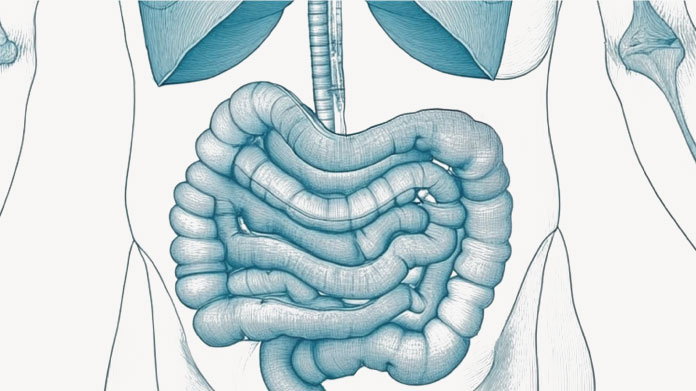Saccharomyces cerevisiae: what are the benefits of this yeast?
Saccharomyces cerevisiae has been used for centuries in baking and brewing, and is now attracting scientific interest for its potential health benefits. Let's find out what the benefits of this yeast could be.

Saccharomyces cerevisiae: what is it?
Saccharomyces cerevisiae is a natural yeast belonging to the saccharomycetaceae family.
It is one of the most widely used microorganisms in human food, and has been for thousands of years, helping to make bread, beer and wine.
Naturally present on grains, fruit or even in the air, it spontaneously colonises cereal-based preparations or fruit juices.
More specifically, this yeast is capable of fermenting sugars, producing gas in bread (which makes it rise) and alcohol in beer and wine, while contributing to the flavour.
Depending on their characteristics, different strains of Saccharomyces cerevisiae are selected and marketed as 'baker's yeast'or 'brewer's yeast'.
A nutrient-rich yeast with increasingly well-studied effects
In addition to its role in fermentation, Saccharomyces cerevisiae contains a wealth of nutrients:
- proteins
- fibre
- minerals (zinc and selenium)
- above all, vitamins from the B group (B1, B2, B3, B5, B6, B8, B9) (1)
Saccharomyces cerevisiae is now attracting a great deal of interest in the field of health.
Certain specific strains are being studied for their potential beneficial effects on the body, particularly on the gastrointestinal tract.
The health benefits of Saccharomyces cerevisiae
Its probiotic version S. boulardii: supporting intestinal health
Certain strains of Saccharomyces cerevisiae have been shown to have beneficial effects on intestinal health.
This is particularly true of Saccharomyces cerevisiae var. boulardii, a probiotic strain widely studied for its ability to support the balance of the intestinal microbiota.
Several studies have highlighted the potential role of S. boulardii in preventing antibiotic-associated diarrhoea, fighting intestinal infections and maintaining a harmonious microbiota (2).
![]() Discover the probiotic Saccharomyces boulardii packaged in gastro-resistant capsules to maximise the survival of the yeast until it is released into the intestine.
Discover the probiotic Saccharomyces boulardii packaged in gastro-resistant capsules to maximise the survival of the yeast until it is released into the intestine.
S. cerevisiae in multi-strain probiotics: enhancing gut microbiota balance
Some food supplements also combine a classic version of S. cerevisiae with various probiotic strains to create effective, synergistic formulas.
The yeast contributes its beta-glucans (polysaccharides naturally present in the yeast cell wall), which act as potential prebiotics to support the growth of the probiotics and reinforce their efficacy.
When fermented by colon bacteria, beta-glucans are also thought to promote the production of short-chain fatty acids, such as butyrate, which are good for the health of the intestinal mucosa.
![]() Discover Colon Friendly multi-strain probiotic with Saccharomyces cerevisiae, Bifidobacterium longum infantis, Bifidobacterium longum longum and Lactobacillus acidophilus.
Discover Colon Friendly multi-strain probiotic with Saccharomyces cerevisiae, Bifidobacterium longum infantis, Bifidobacterium longum longum and Lactobacillus acidophilus.
Beta-glucans: supporting the immune system
According to the latest research, beta-glucans from Saccharomyces cerevisiae are also associated with the modulation of immune responses via innate immunity receptors (3-4).
Among other things, they are thought to stimulate macrophages and dendritic cells.
S. cerevisiae food supplements with a high beta-glucan content are therefore generally appreciated by people who want to take care of their immunity.
![]() Discover Beta 1.3/1.6 Glucan, a Saccharomyces cerevisiae extract standardised to 70% beta-(1,3/1,6)-glucans.
Discover Beta 1.3/1.6 Glucan, a Saccharomyces cerevisiae extract standardised to 70% beta-(1,3/1,6)-glucans.
It is worth briefly noting the interesting synergies in this area: yeast is sometimes combined with Echinacea purpurea, which supports the immune system by promoting the production of cytokines (6).
Yeast and echinacea also combine very well with vitamin C, which contributes to the normal functioning of the immune system by supporting the activity of lymphocytes and the barrier function of mucous membranes.
![]() Discover the Immunity Booster food supplement, which combines S. cerevisiae extract, organic echinacea extract, vitamin C from acerola and zinc.
Discover the Immunity Booster food supplement, which combines S. cerevisiae extract, organic echinacea extract, vitamin C from acerola and zinc.
B vitamins: contributing to hair health
As mentioned above, Saccharomyces cerevisiae is a natural source of B-group vitamins.
In the body, these play an essential role in cell metabolism, energy production and the health of the skin, nails and hair.
Brewer's yeast, for example, is rich in vitamin B8 or biotin, which helps maintain normal hair by participating in the synthesis of keratin (the main protein making up hair) and the normal metabolism of macronutrients (proteins, carbohydrates, lipids), essential for the regeneration of scalp cells and hair growth (5).
This is why brewer's yeast is traditionally used as a hair care or revitalising treatment, particularly during seasonal changes or times of temporary fatigue.
![]() Discover Brewer'sHair Boost, which contains a combination of S. cerevisiae and nutrients to support hair growth and beauty.
Discover Brewer'sHair Boost, which contains a combination of S. cerevisiae and nutrients to support hair growth and beauty.
SUPERSMART ADVICE
References
- Perli T, Wronska AK, Ortiz-Merino RA, Pronk JT, Daran JM. Vitamin requirements and biosynthesis in Saccharomyces cerevisiae. 2020 Apr;37(4):283-304. doi: 10.1002/yea.3461. Epub 2020 Feb 6. PMID: 31972058; PMCID: PMC7187267.
- Kelesidis T, Pothoulakis C. Efficacy and safety of the probiotic Saccharomyces boulardii for the prevention and therapy of gastrointestinal disorders. Therap Adv Gastroenterol. 2012 Mar;5(2):111-25. doi: 10.1177/1756283X11428502. PMID: 22423260; PMCID: PMC3296087.
- Novak M, Vetvicka V. Beta-glucans, history, and the present: immunomodulatory aspects and mechanisms of action. J Immunotoxicol. 2008 Jan;5(1):47-57. doi: 10.1080/15476910802019045. PMID: 18382858.
- Wang H , Chen G , Li X , Zheng F , Zeng X . Yeast β-glucan, a potential prebiotic, showed a similar probiotic activity to inulin. Food Funct. 2020 Dec 1;11(12):10386-10396. doi: 10.1039/d0fo02224a. Epub 2020 Nov 24. PMID: 33231600.
- Patel DP, Swink SM, Castelo-Soccio L. A Review of the Use of Biotin for Hair Loss. Skin Appendage Disord. 2017 Aug;3(3):166-169. doi: 10.1159/000462981. Epub 2017 Apr 27. PMID: 28879195; PMCID: PMC5582478.
- Aucoin M, Cardozo V, McLaren MD, Garber A, Remy D, Baker J, Gratton A, Kala MA, Monteiro S, Warder C, Perciballi A, Cooley K. A systematic review on the effects of Echinacea supplementation on cytokine levels: Is there a role in COVID-19? Metabol Open. 2021 Sep;11:100115. doi: 10.1016/j.metop.2021.100115. Epub 2021 Jul 29. PMID: 34341776; PMCID: PMC8320399.
1 Hours
Quick delivery
Quick delivery
Caroline Saelens
6 Hours
High quality
In my experience the products will not disappoint you.
Fred Laan
3 Days
Super smart is really…super !
I would like to share my excellent experience with the company’s fast and efficient customer service. Even though I was calling from abroad, I was able to reach them relatively quickly. They responded to all my emails promptly and kept me consistently informed about the status of my order. When I needed assistance correcting a mistake I had made with my order, Ms. Lorie handled the issue immediately and very professionally. Thanks to their support and efficiency, I received my Super Smart products in Greece much faster than expected. Thank you very much for the outstanding service!
Kazanti Kleopatra
6 Days
Ordering and delivery is easy and fast
Ordering and delivery is easy and fast
Peter
8 Days
Simple and quick :-)
My order was delivered quickly, and I'm satisfied with the product! It was lot less fuss compared with some things I've ordered.
DEL Jacqueline
8 Days
Excellent quality products & customer…
Excellent quality products & customer service & care …thank you!
Giovanna Escalera
10 Days
great experience
Easy ordering, fast deliver, very professionally.
Natasa
13 Days
this company and its products are…
this company and its products are perfect: I have been their customer for three years , prices are reasonable for the high quality they offer , the products are of very good quality not just plainly "normal" , delivery is quite fast. we are very satisfied with them.
Gabriel Diacakis
14 Days
TOP service TOP products will buy again…
TOP service TOP products will buy again and again
PINOTTI Giorgio
16 Days
Trustworthy company with tested products
Trustworthy company with tested products
Trusted
20 Days
Efficiency and speed
Efficiency and speed
Cuccie
22 Days
GOOD BRAND IN FOOD COMPLEMENTS
GOOD BRAND IN FOOD COMPLEMENTS - SERIOUS WITH GOOD DOCUMENTS AND DETAILS SCIENTIST. AND SERIOUS HONNEST COMMERZIALISATION. I HAVE TRUST IN THEIR PRODUCTS.
FENOGLIO Guy
23 Days
Very good experience
Very good experience, the products arrived in time, in perfect condition and are good quality. Thank you.
GABI TIRCOCI
29 Days
very good expereince
very good expereince
Jelena Đaković
29 Days
Very good products.
Very good products.
Agnes BENDSAK
of experience
your money back
##montant## purchase


